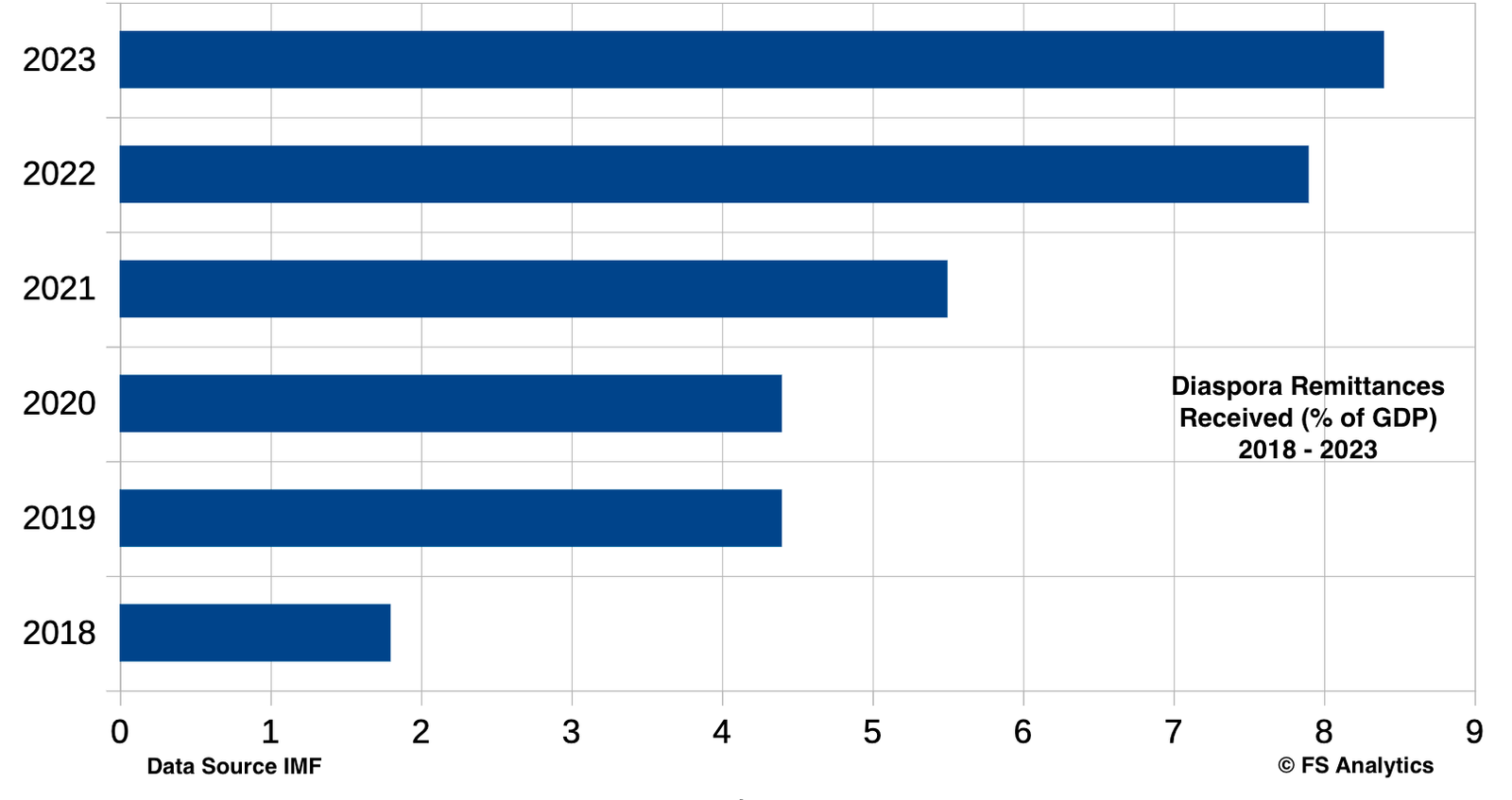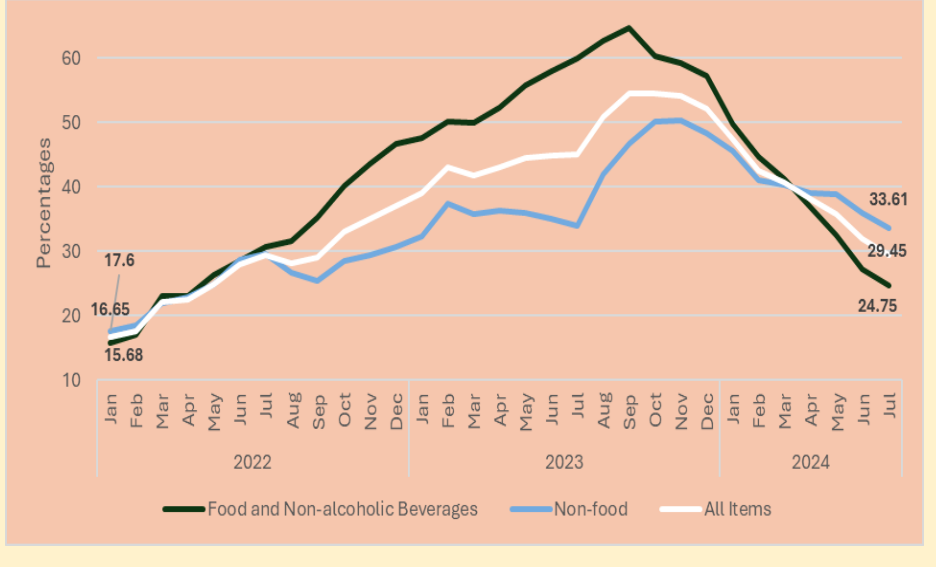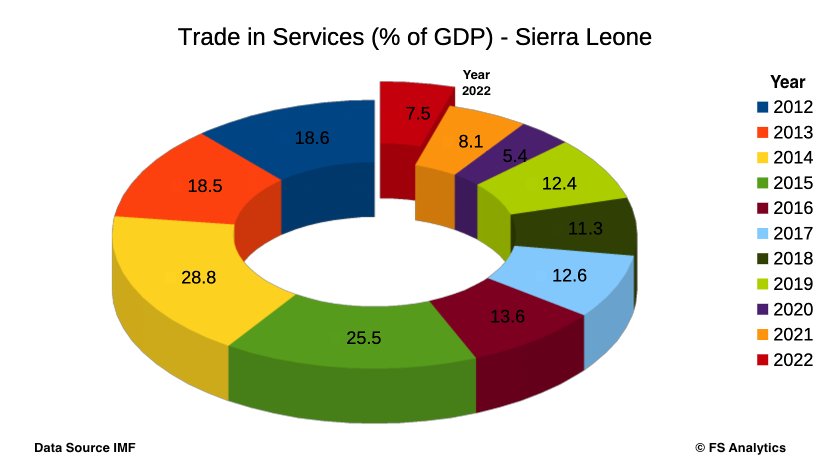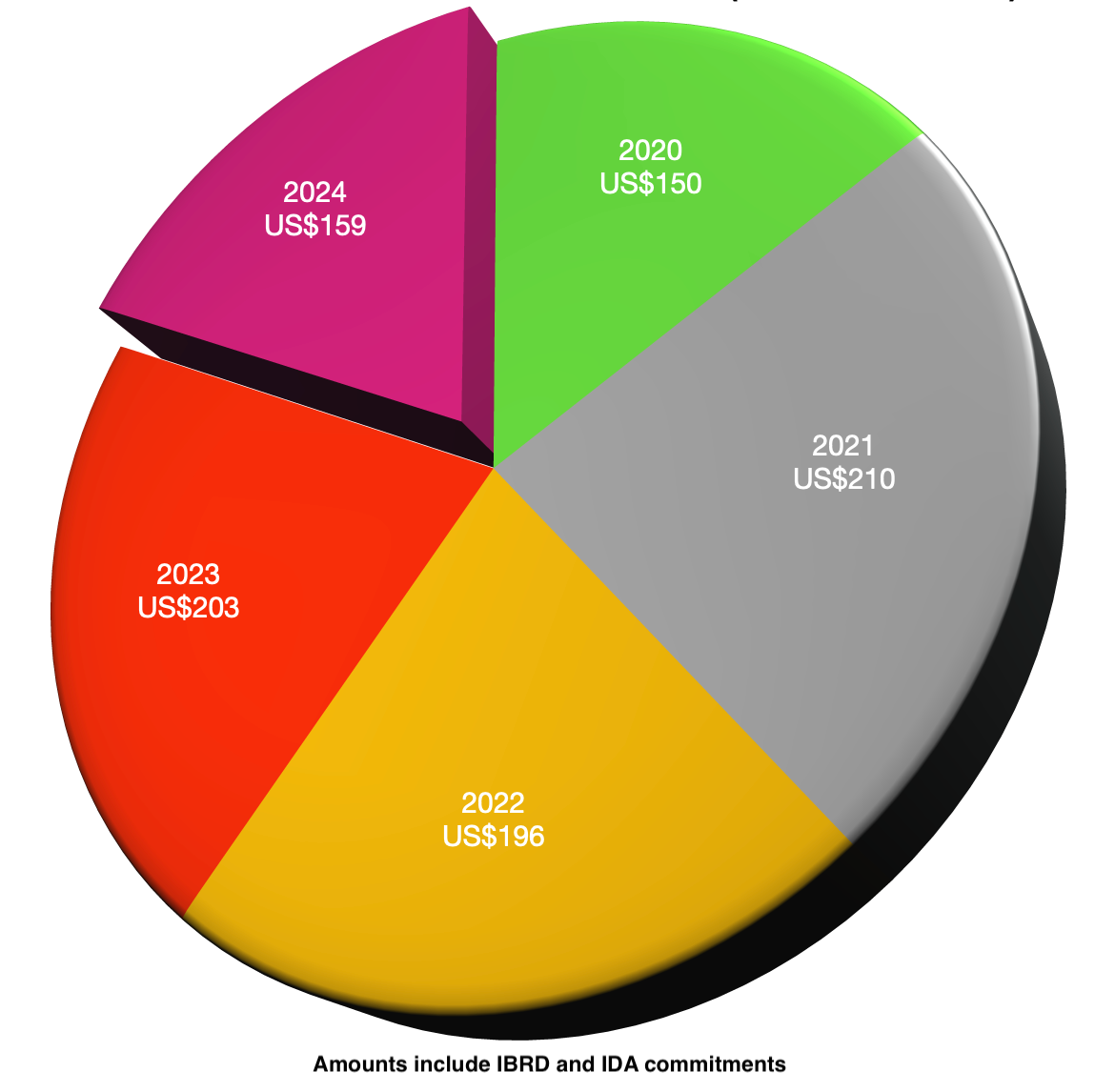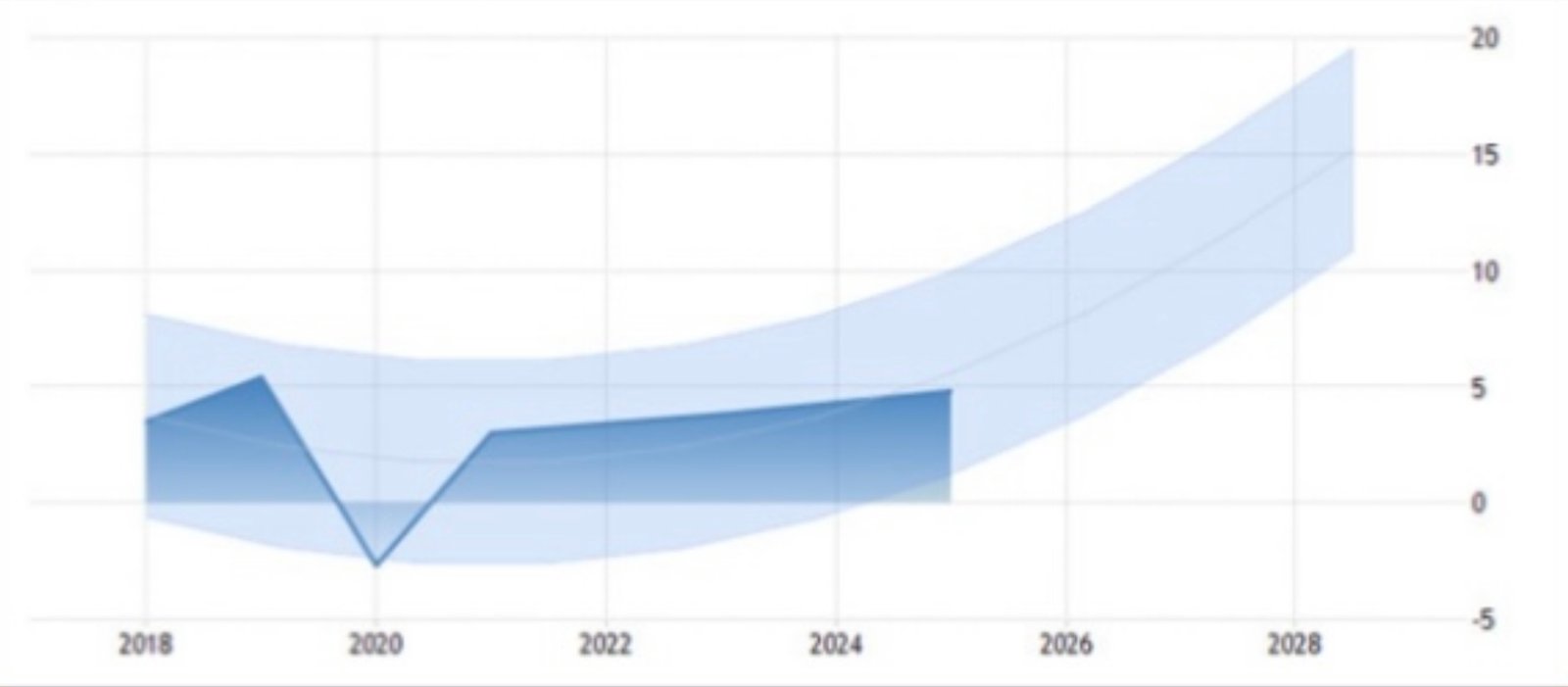Structural Transformation To Gulp $7.5Bn
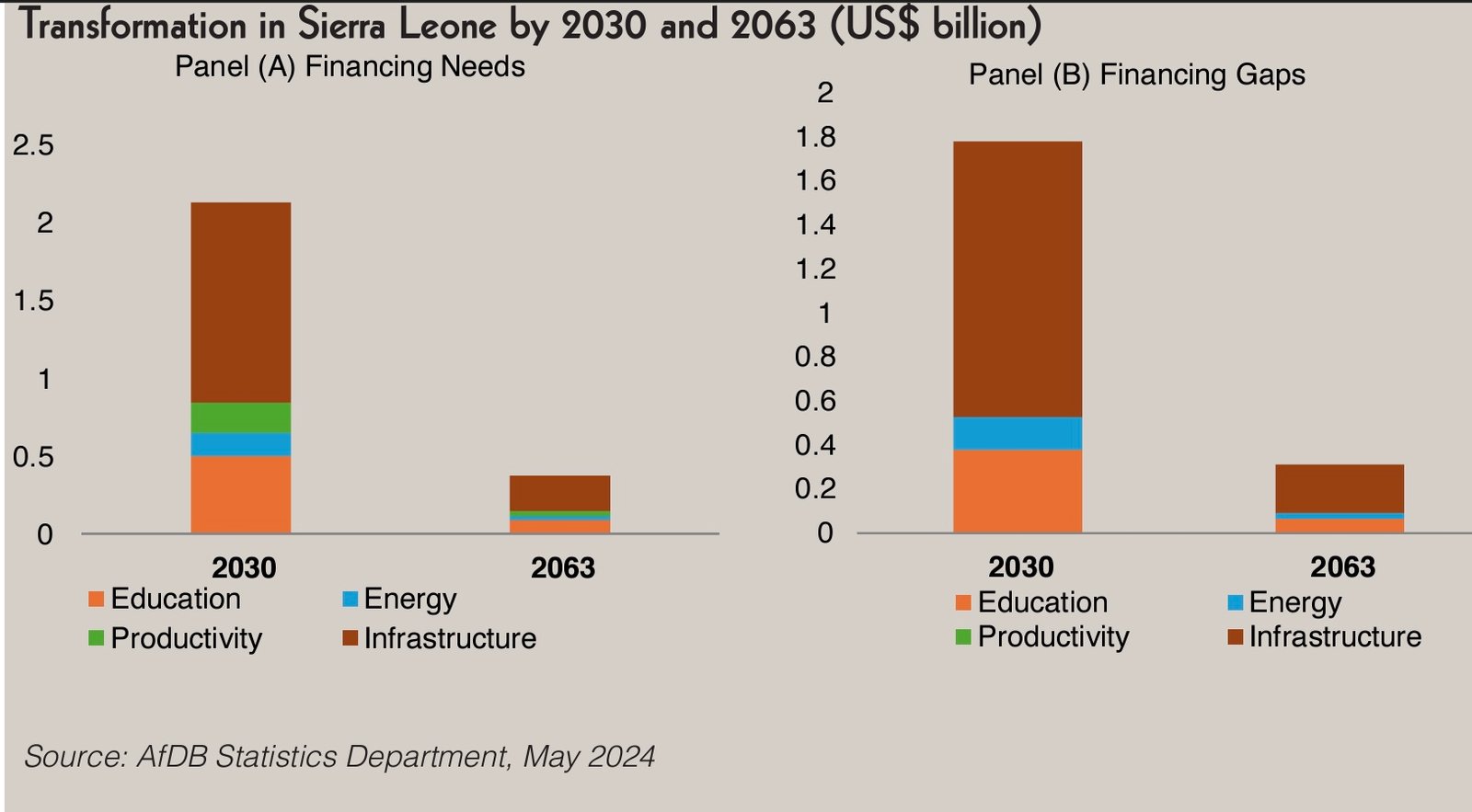 AFDB Chart for Sierra Leone
AFDB Chart for Sierra Leone
The African Development Bank (AfDB) has provided crucial insights into the financing required to achieve structural transformation to meet the goals of Sierra Leone's development agenda by 2030 and 2063 which are substantial.
AfDB assessments on structural transformation involves shifting the economy from one reliant on subsistence agriculture to one characterized by industrialization and services, with considerable investment in infrastructure, education, health, and agriculture to facilitate economic transformation. For Sierra Leone, such transformation is aligned with the United Nations Sustainable Development Goals (SDGs) and the African Union's Agenda 2063.
By 2030: The AfDB estimates that the country will require approximately $7.5 billion annually to catalyse its structural transformation. This figure represents the investments necessary to support initiatives aimed at enhancing productivity, improving public services, and ensuring broad-based economic growth.
By 2063: The long-term vision outlined in the African Union's Agenda 2063 posits that Sierra Leone's financing needs will increase to around $12 billion annually. This increase reflects the anticipated growth in population, urbanization, and the resultant demands on public services and infrastructure. The Increase industrial value added from 4.5% to 10% of GDP by 2030. Reduce unemployment rates from 7.5% to below 5% by 2030, particularly among youth, and improve infrastructure investment to support economic activities, aiming for a minimum of 10% of GDP as public investment in infrastructure.
The AFDB’s insights into the estimated annual financing needs reveal a significant path ahead for the nation’s structural transformation ambitions. With an evident financing gap, stakeholders must act quickly and decisively to develop robust strategies to attract investment and optimize the use of available resources, focused on collaboration amongst government, private sectors, and international partners is essential.
13-01-2025


